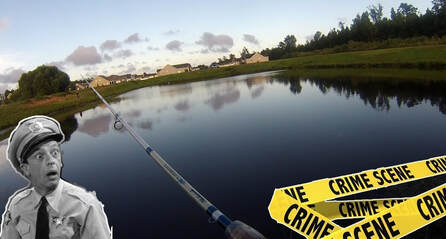|
‘Learning is a treasure that will follow its owner everywhere.’ (Chinese proverb) Action Learning facilitator training with different participant groups always surfaces fresh and fascinating insights, emphases and challenges. This week’s ALA training programme was with a group of health professionals in diverse roles and fields of practice ranging from nursing, occupational therapy and podiatry to mental health, speech and language and education. I was inspired by their enthusiasm, personal ethics and genuine commitment to culture change. As we worked through Action Learning principles and techniques and how to enable groups to do it well, we explored 5 shift areas to facilitate a transition: from diagnosis to elicitation; from issue to person; from there-and-then to here-and-now; from first questions to follow-up questions; from reflection to agency. I’ll say a little about each of these dimensions with some practical examples below. The goal in each is to enhance participants’ learning and impact. From diagnosis to elicitation is a shift in who owns the issue from, say, ‘Tell me more about X so I can help you?’ to e.g. ‘What questions is X raising for you?’ From issue to person is a shift in focus from, say, ‘What’s the situation?’ to e.g. ‘What challenge is this situation posing for you?’ From there-and-then to here-and-now is a shift in temporal orientation from, say, ‘What have you tried?’ to e.g. ‘Given what you have tried, what stands out as the critical issue now?’ From first questions to follow-up questions is a shift in depth to move below and beyond, say, ‘How important is this to you?’ to e.g. ‘Given how important this is to you, what are you willing to risk?’ From reflection to agency represents a shift in traction from, say, ‘What sense are you making of this?’ to e.g. ‘What actions will you take to address this?’ A skill of the facilitator is to build the capacity of an Action Learning set to navigate these shifts in service of a presenter.
8 Comments
‘Language is power, life and the instrument of culture, the instrument of domination and liberation.’ (Angela Carter) In her challenging and ground-reclaiming polemic, Drop the Disorder, psychotherapist Jo Watson comments that, “The counselling profession (and in that I include psychotherapy) is helping to endorse a medical understanding of emotional distress that is based on ‘What is wrong with you?’ and not ‘What has happened to you?’” I heard a similar-but-different reframing of the issue from Paul Kelly at a Leading & Influencing Trauma-Informed Change workshop today, advocating a shift from “What’s the matter with you?” to “What matters to you?” The striking feature of both these examples is the profound impact of language on reflecting and reinforcing the ways in which people and situations are construed and responded to. In Jo Watson’s case, the first framing regards an issue as some form of dysfunction in an individual. The alternative looks beyond the individual to explore wider potential influencing factors. As radical social reformer Martin Luther King noticed, what appears at first glance as dysfunctional behaviour is sometimes a normal response to dysfunctional circumstances. In Paul Kelly’s case, similarly, the first framing locates a problem within an individual. It’s a form of pathologizing, implying that a person’s behaviour is a consequence of some internal defect. The alternative invites an exploration of the person’s underlying values and motivations. Behaviour that appears dysfunctional could be a natural response to healthy, unmet hopes and needs in a dysfunctional environment. Kenneth Gergen offers a stark warning here, pointing to risks of a medical model applied uncritically: ‘a diseasing of the population.’ 'I would rather have questions that can't be answered than answers that can't be questioned.' (Richard Feynman) When a person introduces an issue they are facing, we and often they are not always clear at the outset what underlying challenge that issue is posing for them. Rather than asking more questions about the issue itself, however, we could invite the person to reframe the issue as a question. ‘What questions come to mind as you think about this?’ ‘What question is this raising for you now?’ I worked with a strategy consultant who asked great questions; for example ‘What are the questions that, if we were to answer them, would enable us to make strategic decisions?’ In Action Learning sets, we could ask a presenter, for instance, ‘What are the questions you’d find most useful for us to ask?’ And, in high-challenge coaching, ‘What’s the question you’re hoping I won’t ask you?’ Priest-philosopher Thomas Aquinas observed that a good question can set a person off on a quest; a restless and intense journey of searching and discovery. It’s very different to providing a superficial answer that can close thinking down. I sometimes go one step further and ask, ‘What’s the question behind the question?’ It can raise tacit, subconscious and intuitive knowing into view. A ‘check engine’ warning light flashed up on my car dashboard this week. It turned out to be a false alarm – a warning that was, apparently, triggered by jump start last week. I know that now. The unnerving part was the not-knowing in-between. What is there was something seriously wrong? How am I to know if a warning symbol can be ignored or if it’s highlighting a genuine cause for concern? In this case, I was able to take the car to a local mechanic to have it checked out. When, however, we experience ‘warning lights’ psychologically or emotionally, it can be harder to discern. A manager is invited to present to an Executive Team and feels deeply anxious. Is that a false alarm or, perhaps, an intuition that is flagging up what ought to be considered a genuine risk? A team member is asked to give critical feedback to a colleague in another department and feels worried about how they may react. Are they being over-sensitive or should they be concerned? Here are some insights to help when making a judgement call. 1. Has the person experienced similar situations and associated emotions in the past? If so, their past may be re-triggering feelings in the present. 2. Does the person have any tangible evidence that supports their concerns? They may be making hypotheses or assumptions. 3. Would different others be likely to feel the same if faced with a similar situation? It may be a personal or cultural narrative the person is telling themself. A tricky part is that it’s not always an either-or phenomenon. The anxious manager may have experienced something similar in the past and the Executive Team may be demanding unrealistic levels of performance. The team member may be highly-sensitive and their colleague may react defensively. How do you distinguish between a false alarm and something that’s real? Do you trust your your feelings or intuition most, or lean more towards evidence or reason – or something else? ‘The facts never speak for themselves.’ (Geoff Pelham) Res ipsa loquitur. A Latin phrase. It means: the facts are so obvious that no further explanation is needed. ‘Anita is under-performing, despite having been trained. She is clearly incompetent.’ Right? Wrong. Anita may well be incapable of doing the job, but the facts (under-performing; trained) don’t necessarily, of themselves, lead to that conclusion. What if, for instance, she’s trying to cover for an absent colleague at the same time as doing her own job, or if elements have changed that weren’t covered by the training? The focus on Anita, in isolation as an individual, is just one way of construing a situation. If we were to zoom-out, as with a camera, who and what else comes into view and what questions could that raise? For instance: Who sets the performance standards? What are they based on? Are they fair, realistic and achievable? What other factors could influence Anita’s performance, such as quality of line-management relationship, access to the right and timely information and resources, critical dependencies on other teams? The facts never speak for themselves. When have you experienced or enabled a paradigm shift, a radical re-framing, a surfaced personal-cultural assumption, that changed everything? How did you do it? What then became possible? Would you like help with thinking outside of the box? Get in touch! [email protected] ‘It’s front-to-back!’, my daughter would say with a smile – when she was two. It was creative genius, depicting the meaning of the phrase, back-to-front, in how she structured the sentence itself. It’s a word play suggesting that something is, somehow, the wrong-way-round. This notion of wrong-way-round itself suggests implicitly that there is a right-way-round. Our notions of right-way-round are usually an indicator of convention, function or perspective rather than something that is, per se.
Take, for instance: ‘The West is in the East if you’re standing in Vladivostok.’ The statement only makes sense if we hold a Eurocentric view of the world, in which countries on the left of a flat, traditional map are regarded as the West, corresponding to directions on a compass, and those on the right are (progressively) East. If we form the map into a globe, however, everywhere is relatively West and East of everywhere else, marked only in relation to other places by relative direction and distance. We could instead take, say, a geo-political view in which places are distinguished or related by location, terrain, access or resources. Or we could take, say, a socio-anthropological view in which places are distinguished or related by history, tradition, language and culture. There is no one, definitive, way of looking at and making sense of what is in the world. Whatever statement I make reveals an implicit personal-cultural construct; a hidden backdrop of beliefs, values and assumptions. How easy do you find it to view things front-to-back at work, to notice, reveal and challenge existing paradigms and perspectives? If you do it well, what then becomes possible? Do you need help with front-to-back thinking? Get in touch! nick-wright.com 'Give a man a fish and you feed him for a day. Teach a man to fish and you feed him for life. Right? Wrong. Not if there’s a factory upstream pumping toxic effluent into the river.’ (Bill Crooks) Bill’s jolting critique demonstrates starkly the potential inadequacy of focusing on a person, or an issue, out of context. There is, after all, always a context, a Gestalt ‘Ground’, that bears an influence on a person, team, group or organisation and what she, he or they are capable of achieving. It could be an enabling or disabling influence, a stronger or weaker influence, yet an influence all the same. I worked with an organisation that took contextual dynamics very seriously; e.g. when setting and reviewing goals, ‘What else?’ was a key question. What else would it take to achieve success, over and above the enthusiasm, expertise and hard work of the individual? What people, resources, relationships and other factors would she have to navigate well, and what support would she need? This approach raises some interesting questions. If we take this kind of systemic view, to what extent does it make sense to reward (or reprove) an individual if the wider context plays such a significant influence on what he does, or doesn’t, do or achieve? It is something about how well, or not, he grasps, transcends or overcomes whatever opportunities or challenges the context may create? What do you think? Can I help you develop greater systemic awareness in your work? Get in touch! [email protected] Like it or not, you’ve been framed. You’ve framed others too. Not just some-one. Everyone you’ve ever met or imagined. Think: male, female, black, white, tall, short, extrovert, introvert, manager, staff, marketing, operations, rich, poor, educated, uneducated, leave, remain. Whatever category we apply to ourselves, or to others, creates an experience, an awareness, of same-as or different-to. ‘I’m a white, male, Christian from the North East of England. I like riding motorbikes.’ Notice what those descriptors evoke for you. Reflect on which draw you towards me and which push you away from me. Have those words created a sense of greater affinity with me or do they now make me feel more alien to you? How are they the same or different to the labels that you apply to yourself? Why does this matter? Well, the categories, the frames of reference, we use are always selective and simplifications of a wider reality and, thereby, reductionist. They draw our attention to certain attributes and cause us to not-notice others. They carry personal-cultural value judgements and trigger emotional responses that influence, often reinforce, our beliefs, attitudes and behaviour. So - what happens if we switch frames, re-frame? What then becomes possible? How can I help you reframe your reality and relationships? Get in touch! [email protected] It was great fun to work with a professional cartoonist. Bill Crooks has a remarkable gift for capturing, expressing or stimulating a thought, an idea or a feeling with a few quick strokes of a marker pen. We were leading a workshop that aimed to reveal and challenge the assumptions that participants bring to customer, client and beneficiary relationships. Bill quickly sketched a large person looking down at a small person through a magnifying glass. He then asked the group, simply, ‘What do you see?’ Participants looked down, thought, discussed then spoke up. ‘We – the organization – are the large person. We are scrutinising the client.’ The inference here was that the organization holds the power, the influence, the prerogative to evaluate and to choose. The wider group agreed. Bill responded provocatively, ‘And what if, unknown to us, the client is connected to unseen networks that dwarf the power, the influence, the prerogative of our organization? Who now is looking down on who?’ It was a sobering moment. Silence hit the room. How easily we make assumptions about ourselves, about others, based on what we see, know or think we understand. Imagine, for a moment, the leader who believes that he or she holds far greater power and influence than individual front-line staff. Hold that thought. And now: think of front-line staff who are connected by social media to key networks and influencers in the organisation’s wider arena. Who now is looking down on who? We are talking here about the dramatic power of re-framing. As we change the metaphorical frame through which we view a person or situation, different pictures, perspectives, opportunities and challenges can emerge, change colour/shape or come into sharper focus. Shift the frame, shift what appears, how it feels and what options become available to us and to our clients. What have been your best experiences of reframing or achieving a radical paradigm shift? How did you do it? I worked with a leadership team recently where we experimented with reframing statements from problems-focus to solutions-focus to see what would happen if we did. The team had been grappling with difficult issues for some time which had led some to the near-resigned conclusion that there was little hope of change. I wondered whether part of the challenge and resulting mood lay in the psychological-linguistic framing of the issues rather than, necessarily, in the issues themselves.
I was curious and invited the team to be curious too about how the issues were being perceived, construed and articulated within the team – a kind of team self-talk, if you like. If someone said, ‘X will not work because of Y’, we experimented with reframing the statement as a question instead, e.g. ‘Given Y, what would it take for X to work?’ It shifted the conversation from a definitive, closed end to an open, curious, exploration of new possibilities and ideas. It created fresh energy too. I’ve worked with some clients where a person may comment that, for instance, ‘X is a good idea in principle but it would never work here.’ It’s often a response from someone who has worked a long time in the same place, has been around the proverbial block a few times or is starting to feel a bit jaded. I try to tune into the mood, acknowledge the underlying feeling and then reframe it: ‘OK, so what would work here?’ or, perhaps, ‘If X is a good idea, what would it take for it to work here?’ In my experience, solutions-focus works best when done in an open (e.g. prayerful) spirit, eliciting values (what matters to you – to motivate), creative visioning (what do you/we hope for – to inspire), appreciative inquiry (what’s working well – to build on) and affirming strengths (what are you/we good at – to draw on). Positive appraisal of the present with optimistic aspiration for the future lead well into: ‘So, what would need to happen for that to happen?’ and, ‘The next step?' |
Nick WrightI'm a psychological coach, trainer and OD consultant. Curious to discover how can I help you? Get in touch! Like what you read? Simply enter your email address below to receive regular blog updates!
|












 RSS Feed
RSS Feed